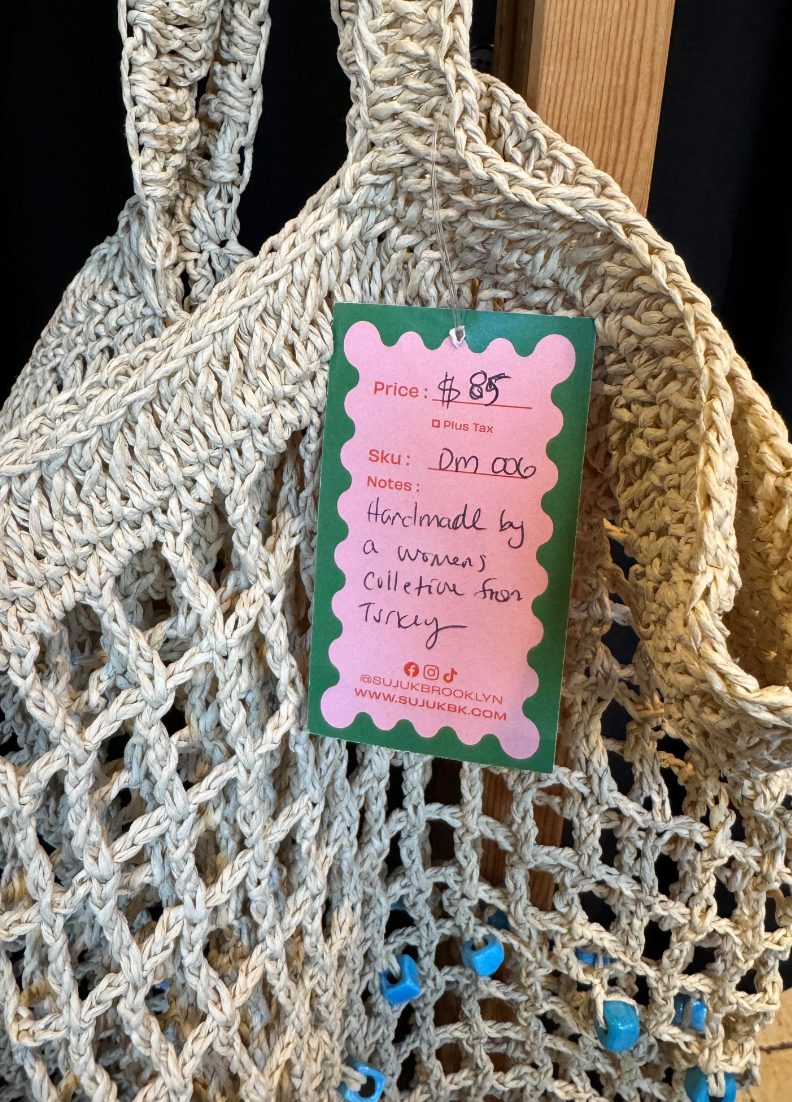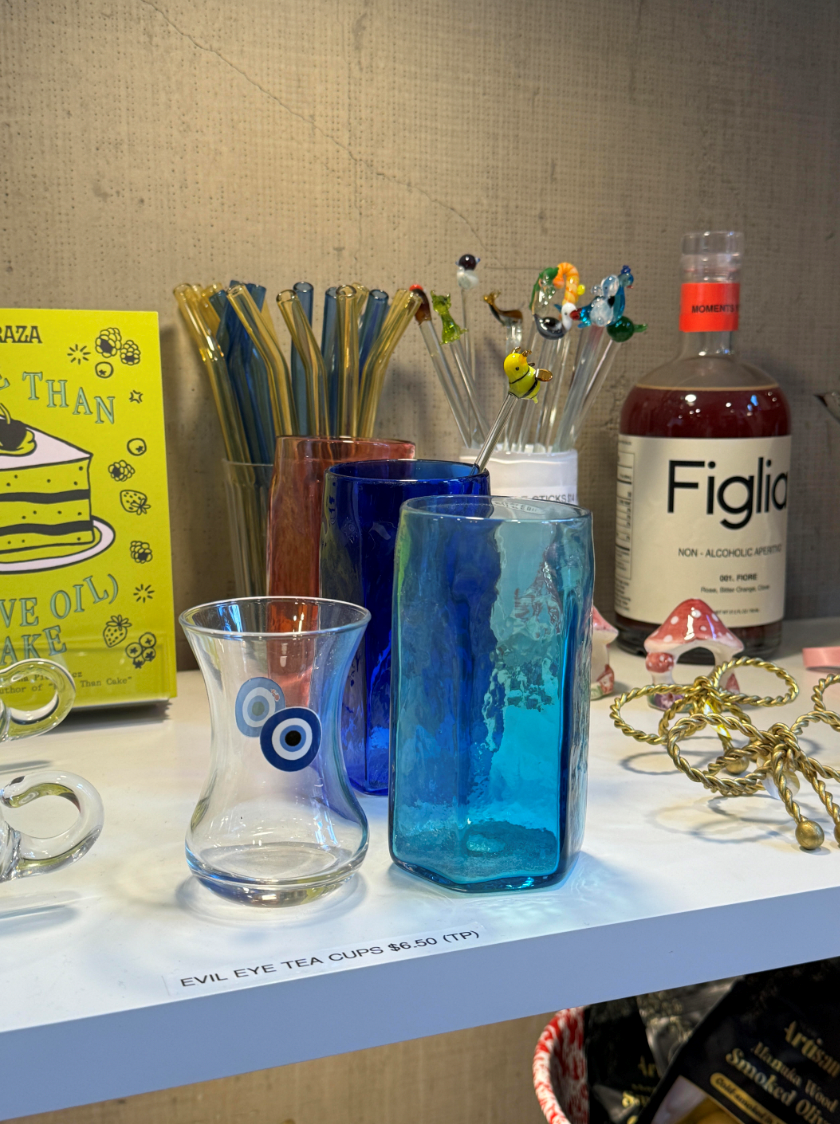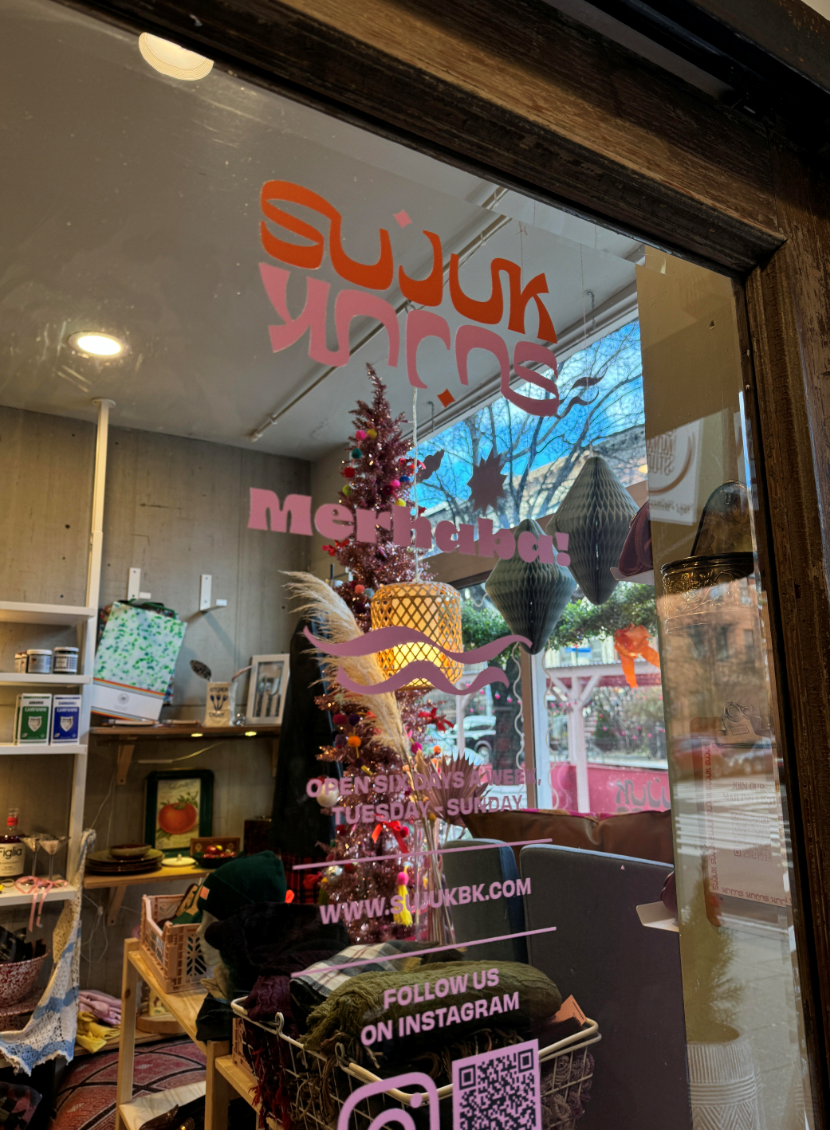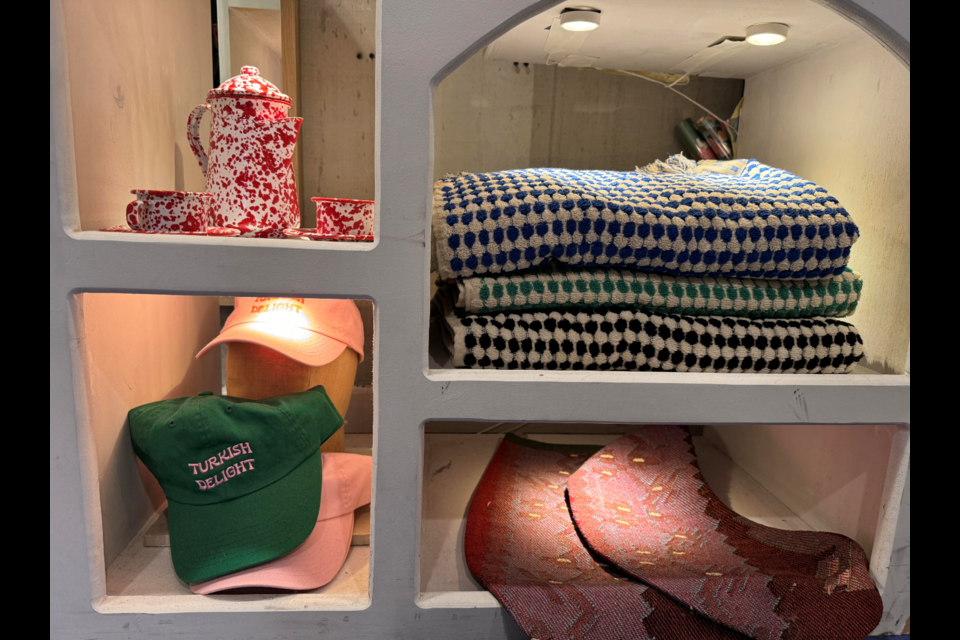By Sophia Caltagirone
The boutique’s window display greeted customers with a sign that read Merhaba, a warm Turkish hello. An aroma of dark-roasted coffee filled the air as a worker placed the bags of Rüya Coffee on the shelves. Pops of color caught the eye from the newly stocked artisan-made beaded totes from the Turkish brand, Tarla.
Past the multi-shaped candles and vintage jackets, sat soft robes and towels with the shop’s logo design, made by a Turkish company in Denizli. Behind it all was the vision of founder, Su Beyazit, bringing her heritage to a lively storefront.
The boutique, Su’juk, supports Turkish creatives, primarily women-owned, by carrying their products in-store. Beyazit began to advertise as a Turkish-owned boutique with the end goal of being able to give back to the Turkish community she came from.
Beyazit, 36, born in Adana, Turkey, opened Su'juk’s first location in Clinton Hill in 2012, now with three other locations in Fort Greene, Cobble Hill, and Upstate New York. Su’juk, is a lifestyle, vintage store with clothing and home decor.

Production of products were primarily centered in Denizli, Bodrum, and Istanbul. Su’juk carried a wide range of products made in Turkey, including sandals, bath items like robes and towels, as well as furniture and home decor. Su’juk is a combination of Beyazit’s current aesthetic and her heritage, which she achieved by supporting Turkish creatives.
“There was a pivotal point in my life after my dad passed when I went back to Turkey as an adult. After that trip, it was clear to me I felt very connected to my Turkish roots,” said Beyazit.
As Beyazit felt more tied to her Turkish culture, Su’juk continued to expand, and so did her support for creatives.
“I want to support Turkish makers as we grow. I want to bring back as much money as I can to the Turkish community,” said Beyazit.
A notable women-owned business Beyazit supports is the Turkish coffee brand, Rüya Coffee.
“Su has been an inspiration. Not just as a small business owner, but just as a female girl boss. Someone who has a really strong work ethic and strong community she's built from her brand,” said Melis Aydogan, 29, founder of Rüya Coffee, an Ohio Turkish coffee brand.

Aydogan showed her heritage with Turkish experiences which appealed to Beyazit.
“Rüya Coffee’s platform was founded to be a positive voice for immigrants in America. We do that right now through coffee, chocolate, and the fortune-telling experience,” said Aydogan.
Margins were slim, but Aydogan charged Beyazit about a 22% higher price compared to what it costs Aydogan to make a bag of coffee. It’s less than the industry average. Beyazit sold Rüya Coffee at an increased price in line with the industry average. However, Beyazit’s stocking of the coffee, markets Aydogan’s business extremely well.
“From a financial perspective, these experiences are very fruitful when I build partnerships and relationships through the products. But then when we can have fortune experiences, obviously people are willing to pay more for that,” said Aydogan.
The fortune-telling experience is a Turkish tradition of reading the fortune from the coffee grounds. Aydogan has done some pop-ups at Su’juk where her stand advertised this Turkish custom.
“People find out about us because they want their fortune. It’s not in a lot of places unless you travel to Turkey or you have a Turkish family,” said Aydogan.
The store manager of all three Brooklyn locations, Gemma Carolina Gutierrez, 19, said, “The platform to showcase Turkish parts of culture like the coffee, allow a conversation to be had about them. Bringing in Turkish creatives only builds Turkish community.”

Mine Celikkol, 53, founder of the Turkish brand, Tarla, is an artisan-made beaded tote bag brand based in Istanbul and New York.
"The partnership with Su'juk has been a boon, both financially and socially. It’s helped our brand gain acclaim. Amid a hard economic situation in Turkey, it's crucial to support women-owned businesses. Their success is a beacon of hope for the entire community,” said Celikkol.
“I try to make sure people know I work with these people closely. Their economy is bad, and many are extremely talented, and unfortunately, they cannot get jobs that pay well. I support as many creatives as I can,” said Beyazit.
Even though Beyazit’s support only helped a few Turkish creatives, it made a slight difference for the brands she supported.
“My goal is to create a product line in Turkey, just keep growing into a product line that supports Turkish makers,” said Beyazit.
Manager, Gutierrez said, “The platform to showcase Turkish individuals allows us to take our part in the Turkish community which is beautiful. Supporting these brands emphasize the beauty of culture and community.”
Sophia Caltagirone, 19, is a freelance journalist studying at The New School for Journalism + Design and Fashion Communications. Caltagirone interns in the fashion industry, while her studying intergrades her journalistic endeavors.




